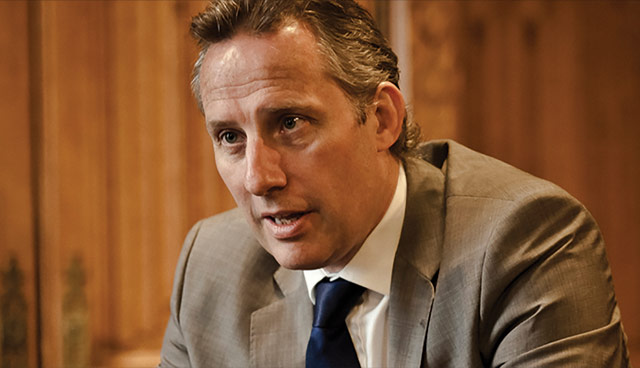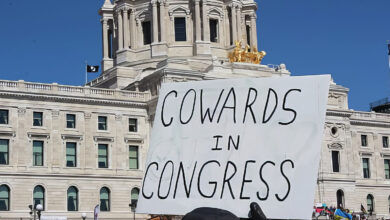Ian Paisley’s Sri Lankan adventures

North Antrim representative and DUP MP Ian Paisley Jr faces the prospect of becoming the first politician to lose his seat under parliamentary expenses legislation. agendaNi assesses the incoming recall petition, Paisley’s Sri Lankan interests and the possibility of a future byelection.
Accusations and allegations
The latest scandal to envelop Northern Irish politics reaches far beyond Stormont, Westminster and the corridors of Europe. What has now erupted into suspension, sanctions and a recall petition started as a 2017 article in The Daily Telegraph, which alleged that North Antrim MP Ian Paisley and his family enjoyed over £100k in hospitality, courtesy of the Sri Lankan government. As one of the DUP’s 10 sitting MPs, Paisley was accused of visiting the country twice in 2013 without declaring it – an accusation which, following investigation, led to a 30-day suspension of both his party membership and his £77k Westminster salary.
The trips, first taking place from 30 March 2013 until 5 April 2013 and then from 2 July 2013 to 11 July 2013, involved both Paisley and his family and were described in visa applications as “official visits”. The Telegraph reported that the MP took his family on two all-expenses-paid holidays to the island that year, with an estimated value of £100,000.
The DUP MP immediately distanced himself from the article, which he claimed was “defamatory” and “devoid of fact or logic”. However, he released a statement in July through his solicitor in which he apologised “unreservedly” for his failure to disclose the hospitality. Following this apology, Paisley reported himself to Parliamentary Commissioner for Standards, Kathryn Hudson, who led a House of Commons Committee on Standards report into his actions and interests in Sri Lanka.
Background
Nearly a year after enjoying hospitality in Sri Lanka, Ian Paisley wrote to then Prime Minister David Cameron a letter, co-signed by fellow members, which expressed “alarm” at the British Government’s decision to “internationalise the internal affairs of Sri Lanka”. This referred to a UN Human Rights Council resolution which called for an international investigation into “alleged violations on both sides of the conflict” – including the execution of prisoners, child recruitment, forced disappearances and torture. Paisley’s opposition to an international enquiry was based upon upholding a “well-established position of non-intervention”, according to the MP.
The same Telegraph article alleged that Paisley approached Sri Lankan officials regarding the brokering of an oil deal, claiming that he had “significant arrangements with national oil suppliers” in Nigeria and Oman. “If you can let me know the quantity and quality specifications of oil requirements I can certainly make this happen quickly,” he said. Despite this, Paisley has emphasised that he “had never brokered any oil deal for any gentleman”, claiming that such suggestions were made merely “out of courtesy”.
Paisley insists that his relationship with Sri Lanka was solidified by his own experiences of conflict resolution in Northern Ireland, with the MP taking part in various negotiations with Sinn Féin in his political career, spanning two decades. “I do not believe that the Government did this as a gift to me solely because it liked me,” he argued.
Paisley’s third and final visit to Sri Lanka was made in order to attend the biennial Commonwealth Heads of Government Meeting in 2013. The prompt registration of the visit, according to the Committee, suggested that Paisley was well aware at the time of the need to register relevant interests. The enquiry concluded that he failed to register his first two visits due to the “potential embarrassment that would be caused to him were it to become publicly known that he had accepted very expensive hospitality, for himself and his family, from a foreign government accused of serious human rights violations”.
Paisley’s trip included seven helicopter flights, transport in a Mercedes and a luxury van, luxury hotel accommodation, air transportation from London-Colombo-London, ground transportation services, a trip to Sigiriya Rock Fortress, a trip to an elephant orphanage and a trip to Sri Lanka’s National Zoological Gardens.
Findings
The House of Commons Committee on Standards found that Paisley’s apparent failure to declare these trips breached a Commons ban on ‘paid advocacy’ – amounting to serious misconduct in the eyes of his peers, the media and his political opponents. This breach was represented in how the MP effectively asked for an exclusive benefit for Sri Lanka “when he had received personal benefit and hospitality from the Sri Lankan Government within the previous 12 months”. Two other breaches were identified, both in how Paisley failed to declare the personal benefit and hospitality from the Sri Lankan Government in his letter to the Prime Minister in March 2014 and in how he failed to register his first two visits to the country in the 28-day period agreed by the Commons.
Following his suspension as a member of the DUP and as an MP, Paisley argued that his relationship with Sri Lanka had “no ulterior motive”, whilst accepting his “total failure” and offering the “profoundest of all apologies” to the Commons.
Recall Petition
Following Paisley’s suspension, the Recall of MPs Act was invoked for the first time since it received Royal Assent. Drawn up in the aftermath of the 2011-2012 parliamentary expenses scandal, the act allows provisions for constituents to recall their MP and call a byelection.
- Section 1 sets out the circumstances in which the Speaker of the House of Commons would trigger the recall process, namely a custodial prison sentence, suspension from the House ordered by the Committee on Standards, or providing false or misleading expenses claims.
- Sections 7-11 outline the procedure whereby the petition is forwarded by the electoral returning officer for the constituency to the MP’s constituents for ratification, approval by 10 per cent of the registered electors, triggering the loss of the MP’s seat and a byelection.
- Section 15 confirms that the seat becomes vacant if the petition is successful, if it had not already been vacated by disqualification or death, or otherwise.
Paisley’s North Antrim constituency has an electorate of 75,657 people. In last year’s election he topped the poll with 20,643 votes – beating the combined poll of 19,939 from other parties. Section 7-11 of the Recall of MPs Act requires that the petition must run for six weeks, even if more than the required 7,542 people have signed it.
Signing of the North Antrim recall petition will run from the 8 August to the 19 September.




